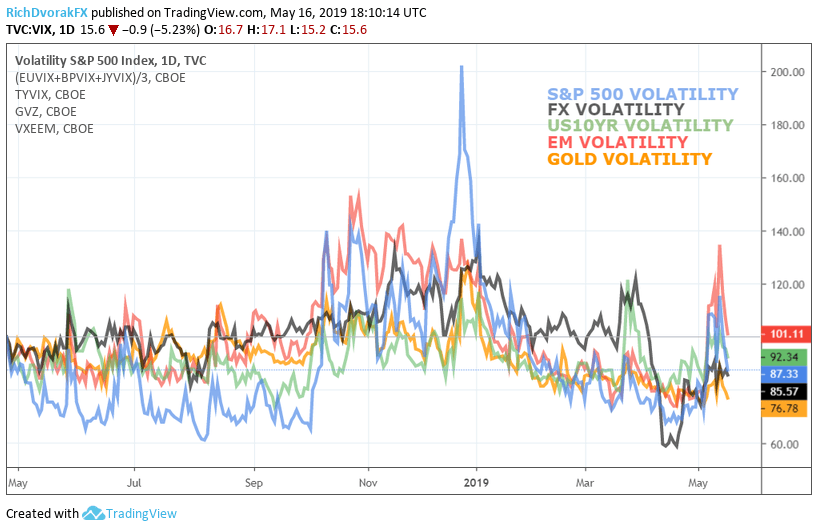The Often-Overlooked Role Of Middle Managers: Driving Productivity And Engagement

Table of Contents
The Bridge Between Leadership and Employees
Middle managers are the crucial link connecting high-level strategic goals with the day-to-day work of their teams. Their effectiveness directly impacts employee engagement and productivity.
Translating Vision into Action
Middle managers are essential for translating high-level strategic goals into actionable steps. They clarify expectations, provide context, and ensure alignment between company vision and individual tasks.
- Clarifying Expectations: They break down complex objectives into manageable tasks, ensuring everyone understands their roles and responsibilities.
- Providing Context: They explain why certain tasks are important, connecting individual contributions to the bigger picture and fostering a sense of purpose.
- Ensuring Goal Alignment: They regularly check in with team members to ensure everyone is on track and address any roadblocks hindering progress. This fosters effective delegation and strategic communication.
Feedback and Communication Flow
Effective middle managers act as a vital conduit for two-way communication, facilitating the flow of information both upwards and downwards.
- Collecting Employee Feedback: They actively solicit input from their teams, creating employee feedback mechanisms that ensure concerns are heard and addressed.
- Addressing Concerns: They act as a buffer, resolving conflicts and addressing employee concerns before they escalate.
- Relaying Information from Upper Management: They translate complex information from senior leadership into clear, concise messages that their teams can easily understand, ensuring performance communication is effective.
Fostering Team Collaboration and Mentorship
Building a high-performing team requires strong leadership at the middle management level. Middle managers are instrumental in fostering a positive and productive work environment.
Building High-Performing Teams
Middle managers play a crucial role in building cohesive and effective teams through various strategies.
- Team-Building Activities: They organize activities that foster camaraderie and improve team dynamics, leading to stronger collaboration.
- Conflict Management: They address conflicts promptly and fairly, mediating disputes and finding solutions that benefit the entire team.
- Fostering a Collaborative Work Environment: They create a culture of open communication, mutual respect, and shared responsibility, implementing effective team collaboration strategies.
Mentoring and Development
Middle managers are often the first line of support for employee development. They play a vital role in mentoring and guiding their team members.
- Identifying Training Needs: They identify skill gaps and recommend training opportunities to help their team members grow professionally.
- Providing Guidance: They offer mentorship, support, and constructive feedback to help team members improve their performance and reach their full potential.
- Supporting Career Growth: They actively support their team members' career aspirations, creating mentorship programs and providing opportunities for advancement. This contributes significantly to effective talent management.
Driving Performance Improvements and Accountability
Middle managers are directly responsible for driving performance improvements within their teams. This involves setting clear expectations, monitoring progress, and addressing challenges proactively.
Setting Clear Expectations and Goals
Effective middle managers establish clear goals and performance expectations.
- Goal Setting: They work with their teams to set SMART goals (Specific, Measurable, Achievable, Relevant, Time-bound) that align with overall company objectives.
- Performance Management: They implement effective performance management strategies, including regular performance reviews and feedback sessions, using key performance indicators (KPIs) to track progress.
Monitoring Progress and Addressing Challenges
Middle managers are responsible for monitoring team progress and addressing challenges.
- Progress Tracking: They utilize project management tools and techniques to track progress towards goals and identify potential roadblocks.
- Proactive Problem-Solving: They conduct regular check-ins with team members to identify and address challenges promptly, demonstrating strong problem-solving skills.
Conclusion
In conclusion, effective middle managers are the backbone of a successful organization. Their contributions to productivity and employee engagement are immeasurable. They bridge the gap between leadership and the workforce, foster collaboration, and drive performance improvements. Investing in your middle managers through training, resources, and support in areas such as communication, leadership, and performance management is crucial. Improve your middle management strategies, and unlock the full potential of your middle managers to achieve significant gains in productivity and employee engagement. Invest in your middle managers, and you'll invest in the future success of your entire organization.

Featured Posts
-
 Schwarzeneggers White Lotus Scene Chris Pratts Response
May 06, 2025
Schwarzeneggers White Lotus Scene Chris Pratts Response
May 06, 2025 -
 Analysis Trumps Trade Deal Strategy And Economic Implications
May 06, 2025
Analysis Trumps Trade Deal Strategy And Economic Implications
May 06, 2025 -
 Gold Market Volatility Examining The Recent Two Week Decline In 2025
May 06, 2025
Gold Market Volatility Examining The Recent Two Week Decline In 2025
May 06, 2025 -
 Schwarzeneggers White Lotus Role Dispelling Nepotism Rumors
May 06, 2025
Schwarzeneggers White Lotus Role Dispelling Nepotism Rumors
May 06, 2025 -
 Option Traders Favor Aussie Over Kiwi Amidst Waning Trade Concerns
May 06, 2025
Option Traders Favor Aussie Over Kiwi Amidst Waning Trade Concerns
May 06, 2025
Latest Posts
-
 Patrick Schwarzenegger And White Lotus Maria Shrivers Revelation
May 06, 2025
Patrick Schwarzenegger And White Lotus Maria Shrivers Revelation
May 06, 2025 -
 Chris Pratt Responds To Brother In Laws White Lotus Nudity
May 06, 2025
Chris Pratt Responds To Brother In Laws White Lotus Nudity
May 06, 2025 -
 Patrick Schwarzeneggers White Lotus Role Maria Shriver Weighs In
May 06, 2025
Patrick Schwarzeneggers White Lotus Role Maria Shriver Weighs In
May 06, 2025 -
 Pratt On Schwarzeneggers Full Frontal A Surprising Endorsement
May 06, 2025
Pratt On Schwarzeneggers Full Frontal A Surprising Endorsement
May 06, 2025 -
 The Truth Behind Patrick Schwarzenegger And Abby Champions Wedding Delay
May 06, 2025
The Truth Behind Patrick Schwarzenegger And Abby Champions Wedding Delay
May 06, 2025
